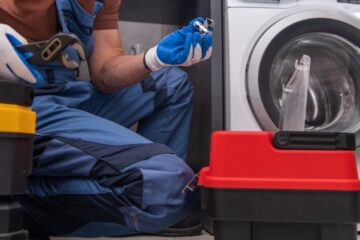
Calling a Professional Plumber vs DIY Plumbing Fixes: Which Option is Best for You?
When faced with a plumbing issue—be it a clogged drain, a leaking faucet, or a running toilet—many homeowners wonder: “Should I tackle this myself, or call in a professional plumber?” It’s a common dilemma. DIY projects are a great way to save money, but plumbing isn’t always as simple as it seems. On the other hand, professional plumbers come at a cost, but they offer expertise and peace of mind. So, what’s the best choice for you?
In this blog post, we’ll dive into the pros and cons of DIY plumbing fixes versus calling a professional, helping you make an informed decision for your home. By the end, you’ll know when it’s okay to roll up your sleeves and when it’s time to pick up the phone.
DIY Plumbing Fixes: When It Makes Sense
Many people are tempted to try fixing plumbing issues themselves to save on service fees. While some minor plumbing repairs are perfectly suited for DIY enthusiasts, it’s important to recognize the limits of your skills and tools.
1. Small Leaks and Drips
Small leaks around faucets or showerheads are common problems that can often be fixed with a little elbow grease. A simple tightening of a nut or replacing a worn-out washer can do the trick.
Why DIY works:
- Quick and easy fix
- Low cost—just the price of a new washer or sealant
- Saves time if you’re in a rush
Tip: If you notice a persistent leak or dripping, but it’s localized to a fixture, it’s usually a straightforward DIY task. Make sure to turn off the water supply before starting.
2. Clogged Drains
Clogged sinks and bathtubs are one of the most common plumbing issues homeowners face. While harsh chemical drain cleaners may seem like a quick fix, they can damage pipes and harm the environment. Instead, you can use a plunger, a drain snake, or a baking soda and vinegar solution to clear minor blockages.
Why DIY works:
- Low cost: most tools are affordable or even available at home
- No need to wait for a plumber
- Can often resolve the problem quickly without the need for chemicals
Tip: Avoid pouring grease or oil down drains, as these substances cause more clogs over time.
3. Running Toilet
A constantly running toilet can be an annoying and wasteful problem. Thankfully, fixing it is often a DIY task. In most cases, the culprit is either a worn-out flapper valve or an improperly adjusted float. Replacing these components is easy and inexpensive.
Why DIY works:
- Quick fix with minimal tools
- Stops water wastage and reduces your water bill
- Cost-effective solution
Tip: If you’ve tried replacing the flapper or adjusting the float and the issue persists, it may be time to call in a professional, as it could be a more complex issue like a malfunctioning valve.
When to Call a Professional Plumber
While DIY fixes work for some minor issues, there are situations where calling a professional plumber is crucial. Attempting to tackle these problems yourself could lead to further damage, higher repair costs, or safety hazards.
1. Burst or Leaking Pipes
A burst pipe is a serious plumbing emergency that requires immediate attention. Attempting to fix a broken pipe on your own without the right knowledge and equipment can make things worse—leading to flooding, structural damage, and costly repairs.
Why professional help is essential:
- Emergency response: Plumbers have the tools and expertise to stop leaks and mitigate water damage immediately
- Proper repair techniques: Plumbers can assess the pipe’s condition and recommend the best repair or replacement options
- Avoid further damage: A professional can avoid damaging your home or pipes further
Tip: If you notice water pooling or hear the sound of running water behind walls, call a plumber immediately.
2. Sewer Line Issues
Sewer line problems are not only complex, but they can also be hazardous to your health. Symptoms of sewer line issues include foul odors, slow draining, or sewage backups. Sewer line repairs often require specialized tools like video inspection cameras and trenchless technology, which are beyond the reach of the average homeowner.
Why professional help is essential:
- Expertise with complex systems
- Specialized equipment for diagnostics and repair
- Prevents contamination and health risks
Tip: Never attempt to fix sewer line issues on your own. Contact a plumber with a Sanitary Constructors License from WASA and one who is experienced in handling these types of emergencies.
3. Water Heater Problems
Water heaters are often complicated appliances, and diagnosing or repairing them can be dangerous without proper training. Whether your water heater is leaking, not heating, or producing discolored water, it’s best to leave it to the professionals. They can identify if the issue is related to the thermostat, the heating element, or a more complex problem.
Why professional help is essential:
- Safety: Handling water heaters involves dealing with high-pressure systems and sometimes electricity, which can be dangerous for an untrained person
- Long-term solution: Professionals can ensure the problem is fixed right the first time, preventing recurring issues
Tip: If your water heater is over 10 years old and frequently breaking down, it might be time for a replacement.
4. Major Pipe Replacement or Rewiring
If you’re experiencing low water pressure, strange noises from pipes, or corrosion, it might indicate an underlying issue with the plumbing system. Major pipe replacements or rewiring requires a skilled plumber to ensure the system is correctly reinstalled and safe.
Why professional help is essential:
- Avoid costly mistakes: Incorrect pipe installation can lead to leaks or water damage
- Long-term functionality: Professional plumbers ensure that your pipes and wiring will last
Tip: If your home’s plumbing is outdated and you frequently deal with issues, it might be time for a complete system overhaul. Consult a plumber for advice on upgrading.
Conclusion: DIY or Professional? It Depends on the Issue
When it comes to plumbing, the decision to DIY or call in a professional depends on the severity of the problem. Minor issues like clogged drains or small leaks can often be fixed by a handy homeowner with a few simple tools. However, when it comes to major plumbing emergencies, complex installations, or health hazards like sewer line problems, calling a professional plumber is always the best choice.
Remember, attempting to fix complicated plumbing problems without the proper knowledge or tools can lead to greater damage, higher repair costs, and unnecessary stress. For major issues, don’t hesitate to call a professional. For minor repairs, with the right tools and knowledge, a DIY approach can save you time and money.












